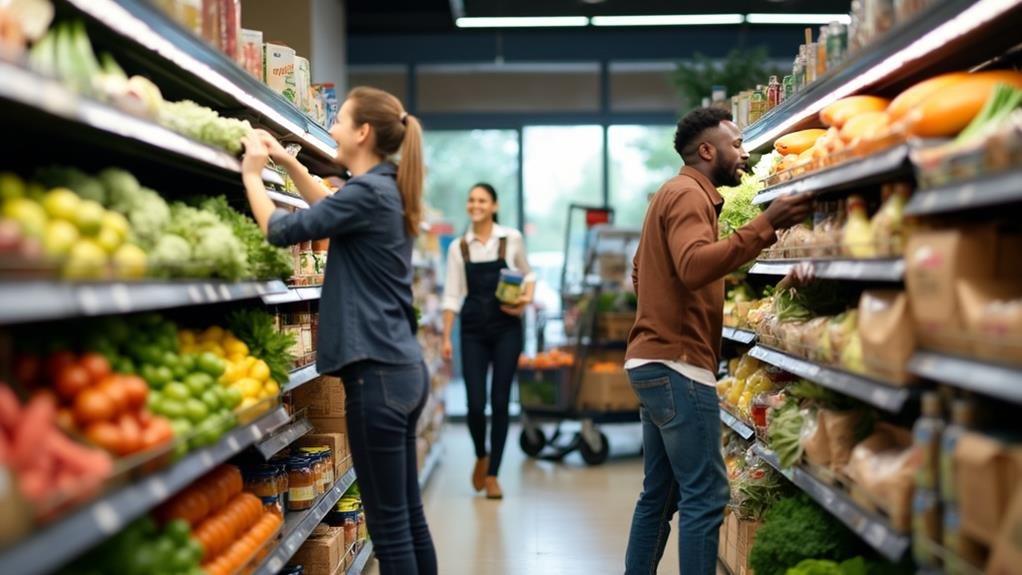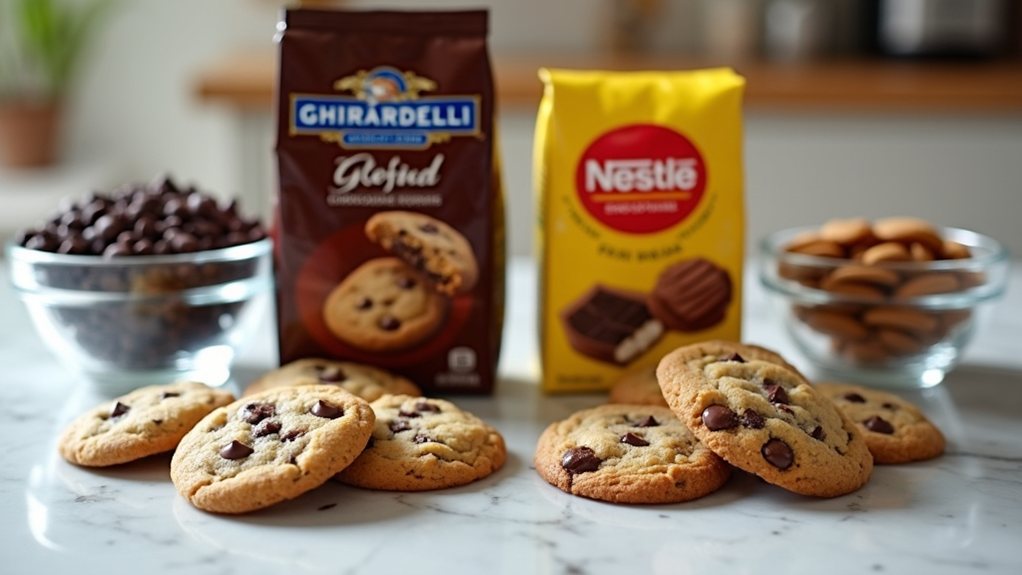Grocery store etiquette advises against putting misplaced items back on shelves. This practice can lead to food waste and inefficiencies, as perishable goods may spoil and non-perishable items might clutter inventory. Instead, shoppers should hand such items to staff, ensuring proper handling. Team members follow established procedures to manage misplaced products, which helps maintain store efficiency. When customers thoughtfully return items, it positively impacts the general shopping experiences while reducing operational losses. Understanding these dynamics fosters responsible behavior among shoppers. Learning more about these crucial practices can further boost your awareness of effective grocery shopping.
Misplaced Items: What to Do
When you spot an item out of place in a Walmart, take a moment to handle it properly. Practicing store etiquette shows good manners and builds a sense of community among shoppers and staff. If you find a misplaced product, consider giving it to a nearby associate. Returning misplaced groceries helps employees minimize extra tasks after closing and ensures items stay in their designated spots.
If you can't find an associate, set the item aside and pass it to the cashier at checkout. While there's no requirement to return misplaced items, doing so is a thoughtful action that aids the store's efficiency. Misplaced products can lead to waste and higher expenses, affecting everyone's shopping experience.
How Stores Handle Misplaced Products
Grocery stores, like Walmart and Kroger, have systematic procedures to manage misplaced items effectively. When products are found in incorrect locations, staff members sort and assess these items efficiently. Perishable goods, such as dairy products and fresh produce, left in non-refrigerated areas are typically discarded to maintain customer safety and uphold quality standards. In contrast, non-perishable items, like canned goods and packaged snacks, that remain within their expiration dates are often returned to their proper shelves, ensuring that inventory remains fresh and accessible.
Each action regarding misplaced items is meticulously logged to track the frequency and types of products commonly misplaced. This data assists stores in understanding shopper behavior and ultimately helps in managing stock levels more effectively. Misplaced groceries, if not handled properly, can lead to profit loss for retailers and, consequently, higher prices for consumers.
Consequences of Misplaced Groceries

Misplaced groceries can significantly harm a supermarket's operations and earnings. When shoppers leave food items in the incorrect sections, it creates challenges leading to financial losses for the establishment. The effects of these actions go beyond mere inconvenience, impacting stock management and food safety.
- Spoiled food, especially perishable products like dairy and meat left outside proper refrigeration, incurs disposal expenses.
- The hours employees at Walmart or Kroger spend searching for and sorting misplaced groceries reduce their efficiency, often resulting in increased labor costs.
- Shoppers may encounter inflated prices as stores like Safeway or Aldi adjust rates to offset losses from damaged or unsold goods.
Additionally, each misplaced grocery item can disrupt the shopping experience for other customers. When consumers act responsibly by returning items to their correct locations or notifying store staff, they contribute to a smoother shopping process. This collaborative behavior helps ensure that grocery stores can manage their inventory effectively and maintain stable prices, ultimately benefiting all shoppers. Recognizing the impact of misplaced groceries encourages a sense of accountability among consumers, creating an environment where everyone can enjoy a more pleasant shopping experience.
Common Misconceptions About Returns
Returning misplaced groceries at a supermarket often leads to misunderstandings that can have negative effects. One prevalent myth is that putting an item back on its original shelf is always the right choice. However, this can lead to food waste, especially with perishable items that might have been in unsuitable conditions. Shoppers may not know how long a product has been outside its proper location, and as a result, they might inadvertently restock spoiled food.
Furthermore, sell-by dates can be misleading. Products that look perfectly good might actually be past their expiration dates, which poses risks for the next customer. Many shoppers think that returning items benefits the supermarket; however, this action can unintentionally increase the workload for staff members, who must sort and evaluate each returned item.
Additionally, the belief that all misplaced products can be easily returned is incorrect. Non-perishable items may be eligible for returns, but those that have been mishandled often cannot be salvaged. Recognizing these misconceptions can create a more considerate shopping experience and encourage customers to reflect on their responsibilities in supermarket etiquette.
Role of Customers in Reducing Losses

Customers play a crucial role in reducing losses linked to misplaced items in grocery stores like Kroger and Walmart. Their participation can greatly enhance the efficiency of store operations and maintain overall profitability. By embracing a supportive mindset, shoppers can help create a more organized shopping atmosphere and minimize waste.
- Return items to associates: Handing misplaced groceries to an available staff member ensures proper handling and lowers the risk of spoilage.
- Communicate effectively: Letting team members know the location where an item was found helps expedite the return process.
- Show consideration: Recognizing that store employees manage misplaced products can cultivate a more cooperative environment.
While returning items is not required, it demonstrates a responsible approach to shopping. This teamwork not only assists store staff in keeping shelves organized but also plays a role in stabilizing prices for all patrons. By acknowledging their contribution to this process, shoppers can make choices that benefit the entire grocery community, underscoring the significance of shared responsibility in fostering an efficient and enjoyable shopping experience.









